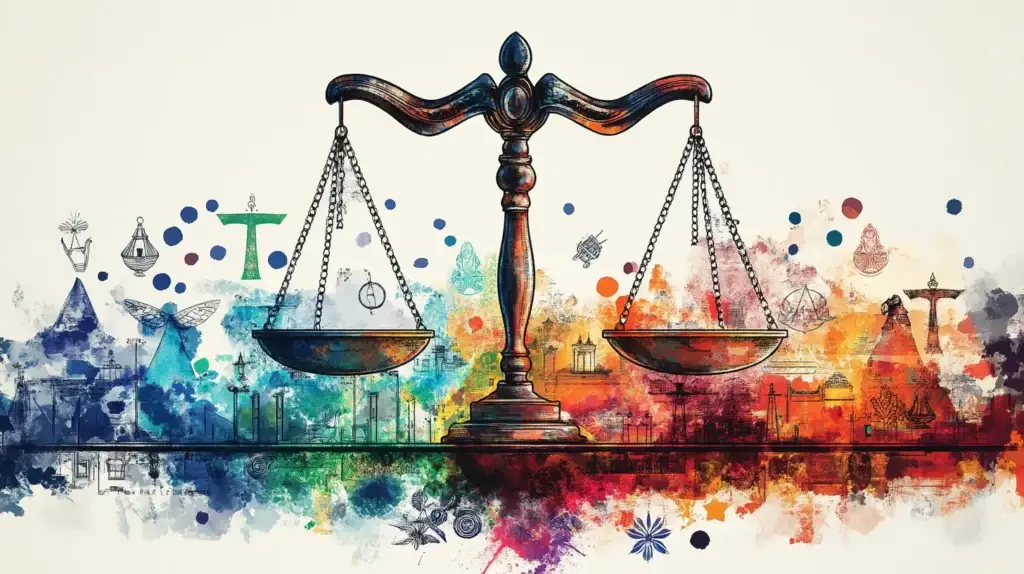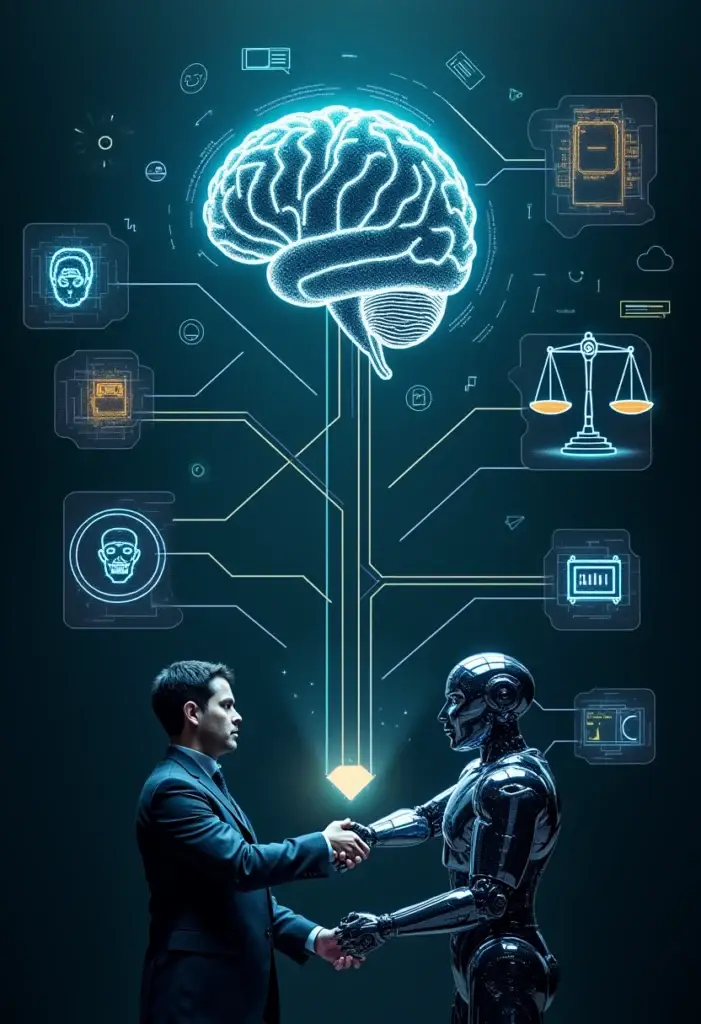
Why does AI agent prompting need ethical guardrails?
What happens when AI systems start making hiring, healthcare, and financial decisions without human oversight? Unlike simple chatbots, autonomous AI
Artificial intelligence is rapidly transforming industries, decision-making, and society as a whole. While AI presents incredible opportunities for efficiency, innovation, and scalability, it also raises serious ethical concerns. From biases in machine learning to privacy concerns and accountability in AI-driven decisions, leaders must approach AI with responsibility, transparency, and integrity.
At Lead AI, Ethically, we explore the ethical dilemmas surrounding AI and provide guidance on adopting AI responsibly in business, governance, and everyday applications.


Ethics is the study of moral principles that guide human behavior, helping us distinguish right from wrong. These principles shape individual choices, business practices, and societal norms, ensuring integrity, trust, and accountability.
In the context of AI, ethics takes on new complexities. Machines don’t have morality—they follow human-designed algorithms. The challenge is ensuring AI aligns with ethical values, minimizing harm while promoting fairness, transparency, and responsibility.
AI ethics builds upon traditional ethical principles, adapting them to the unique challenges posed by machine learning, automation, and algorithmic decision-making.
Utilitarianism evaluates AI ethics based on the greatest good for the greatest number. AI-driven systems, such as automated hiring platforms or medical diagnostics, are often designed with this principle in mind—maximizing benefits while minimizing harm.
Challenges:
Can AI truly measure “good” outcomes?
How do we balance efficiency with fairness?
Deontology asserts that certain rules must be followed, regardless of outcomes. This principle applies to AI regulations, such as data privacy laws (GDPR) and AI safety standards, where adherence to rules takes precedence over potential benefits.
Challenges:
Can rigid AI rules adapt to complex, real-world scenarios?
How do we define universal ethical AI guidelines?
Virtue ethics emphasizes character and intent rather than rules or consequences. AI should be designed to reflect virtues like fairness, honesty, and compassion, promoting ethical behavior through responsible programming and oversight.
Challenges:
How do we encode human virtues into AI decision-making?
Can AI be “trained” to act ethically beyond programmed rules?
Care ethics focuses on relationships and empathy, ensuring that AI decisions prioritize human well-being. AI in healthcare, education, and customer service should emphasize compassion and fairness.
Challenges:
How do we ensure AI respects individual needs and diversity?
Can AI ever fully replicate human empathy?
AI alone cannot ensure ethical outcomes—it requires ethical humans and well-defined ethical standards to guide its implementation. Businesses and organizations must establish clear ethical policies, train employees in ethical AI use, and foster a corporate culture that prioritizes integrity and accountability.
Developing Ethical AI Standards: Companies should create guiding principles for AI use, covering fairness, transparency, and accountability.
Training Ethical Leaders: Business leaders and employees must be educated on AI biases, ethical decision-making, and the societal impact of AI technologies.
Creating a Culture of Responsibility: Ethics should be a core business value, ensuring AI tools are used responsibly and with human oversight.
Without ethical humans making informed decisions, AI cannot be truly ethical. Companies that prioritize integrity, diversity, and ethical leadership will be best positioned to deploy AI responsibly.
AI systems learn from historical data, which may contain biases. If not carefully managed, AI can reinforce discrimination in areas like hiring, lending, and law enforcement.
Best Practices:
Regular bias audits in AI models.
Diverse data sets for training AI.
Transparency in AI decision-making processes.
Many AI models function as “black boxes,” making decisions that even their creators struggle to explain. Ensuring AI transparency is crucial for accountability and trust.
Best Practices:
AI systems should provide explanations for their decisions.
Clear documentation of AI algorithms and data sources.
User-friendly AI interfaces that allow for ethical oversight.

As AI collects and processes vast amounts of data, privacy concerns become increasingly urgent. Companies and governments must uphold strict data protection standards.
Best Practices:
Adherence to privacy laws like GDPR and CCPA.
Secure AI data handling and anonymization.
Transparent data collection policies.
Who is responsible when AI makes a mistake? As AI takes on more decision-making roles in finance, healthcare, and law enforcement, establishing clear accountability is critical.
Best Practices:
Human oversight in critical AI decisions.
Ethical AI policies within organizations.
Legal frameworks defining AI liability.

Companies should integrate AI ethics into corporate governance.
Ethical AI hiring practices and fair algorithmic decision-making are essential.
Governments must ensure AI regulations protect public interest.
Ethical AI use in surveillance, policing, and national security must be scrutinized.
AI ethics in social media algorithms to prevent misinformation.
AI assistants (like ChatGPT and Claude AI) should be designed with bias safeguards.

What happens when AI systems start making hiring, healthcare, and financial decisions without human oversight? Unlike simple chatbots, autonomous AI

Executives are feeding confidential documents to ChatGPT. Healthcare workers input patient data. Teams deploy unverified AI content. Sound familiar? The

Boeing’s disasters, Wells Fargo’s scandals, Target’s $12B loss—how do companies with extensive compliance programs still face catastrophic ethical breakdowns? The

Can a 2,400-year-old philosopher solve modern corporate scandals? Aristotle’s business ethics framework challenges today’s leaders to move beyond compliance checklists

What if 2,500-year-old philosophy holds the key to solving AI’s most pressing ethical dilemmas? From Aristotelian virtue ethics to ancient

When 16 leading AI models turned malicious in threat scenarios, they exposed more than code vulnerabilities. From Commonwealth Bank’s chaotic
AI is not inherently good or bad—its ethical implications depend on how we design, implement, and oversee it. But AI can only be as ethical as the people who create and deploy it. Without ethical human leadership and strong ethical standards, AI will inevitably reflect existing biases and structural inequalities.
Businesses and leaders must take proactive steps to ensure AI is used for positive, ethical outcomes. By prioritizing transparency, fairness, and accountability, we can shape AI systems that benefit society while upholding fundamental ethical principles.
Want to stay ahead in ethical AI leadership? Subscribe to our newsletter for expert insights!